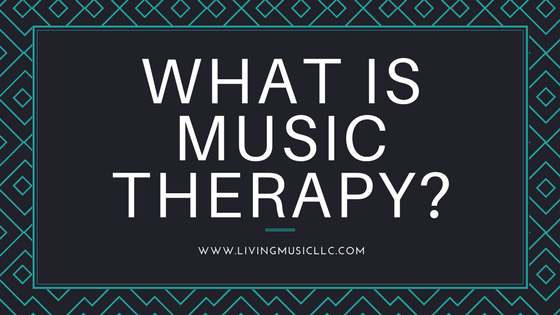

What is Music Therapy?
I’ve recently have had many opportunities to describe and answer this question–from advocating for music therapy licensure at the statehouse to educating high schoolers about opportunities for careers in music. Music therapy is a vast field, serving many populations in many different areas, similar to any other healthcare profession.
The definition set forth by the American Music Therapy Association is as follows:
“Music Therapy is the clinical and evidence-based use of music interventions to accomplish individualized goals within a therapeutic relationship by a credentialed professional who has completed an approved music therapy program.”
Music therapy is provided by a board certified music therapist (MT-BC). Music therapists are focused on the client’s experience of music and how specific music interventions can change and regulate the physical and emotional self.
Many of us use music on a daily basis to feel better, to relax or energize, or help others. It is so fantastic that music is such a therapeutic tool!!
These examples of therapeutic music are noteworthy, but are not clinical music therapy:
- A person with Alzheimer’s listening to an iPod with headphones of his/her favorite songs
- Groups such as Bedside Musicians, Musicians on Call, Music Practitioners, Sound Healers, and Music Thanatologists
- Celebrities performing at hospitals and/or schools
- A piano player in the lobby of a hospital
- Nurses playing background music for patients
- Artists in residence
- Arts educators
- A high school student playing guitar in a nursing home
- A choir singing on the pediatric floor of a hospital
(cited from musictherapy.org)
Clinical music therapy takes music a step further—with a therapeutic relationship, the client and music therapist can actively use and experience music to achieve growth in emotional, physical, spiritual, cognitive, and communicative goals.
Contact Brittany for a free consultation on how music therapy can help you or your loved one.

